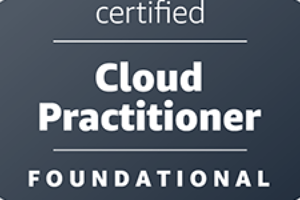Podcast
Questions and Answers
What is a significant advantage of cloud computing related to data management?
What is a significant advantage of cloud computing related to data management?
- Data can only be managed via local servers.
- Data management requires specific hardware setup.
- Data centralization allows access from multiple remote locations. (correct)
- Data is only accessible on-site for maximum security.
What is a key disadvantage associated with cloud computing?
What is a key disadvantage associated with cloud computing?
- Cloud services offer complete control over all infrastructure.
- Cloud services inherently provide unlimited bandwidth.
- Cloud computing guarantees 100% uptime for accessibility.
- High-speed Internet is required for efficient cloud performance. (correct)
Which of the following presents a risk due to the nature of cloud services?
Which of the following presents a risk due to the nature of cloud services?
- Guaranteed data backup on all services.
- Increased physical control of hardware resources.
- Enhanced security due to centralized management.
- Minimal control over the infrastructure. (correct)
How can cloud computing provide a strategic edge to businesses?
How can cloud computing provide a strategic edge to businesses?
What does vendor lock-in refer to in the context of cloud computing?
What does vendor lock-in refer to in the context of cloud computing?
What is the primary function of Cloud Computing?
What is the primary function of Cloud Computing?
Which of the following is an example of Infrastructure-as-a-Service (IaaS)?
Which of the following is an example of Infrastructure-as-a-Service (IaaS)?
What service allows users to access applications without installing them on local devices?
What service allows users to access applications without installing them on local devices?
What is a characteristic of cloud storage?
What is a characteristic of cloud storage?
Which of the following best describes a cloud-based virtual desktop?
Which of the following best describes a cloud-based virtual desktop?
What is one of the advantages of using Cloud disaster recovery?
What is one of the advantages of using Cloud disaster recovery?
What does the term 'Access Anywhere' in the context of SaaS imply?
What does the term 'Access Anywhere' in the context of SaaS imply?
Which type of cloud service is focused on providing scalable storage solutions?
Which type of cloud service is focused on providing scalable storage solutions?
What is the primary function of Platform-as-a-Service (PaaS)?
What is the primary function of Platform-as-a-Service (PaaS)?
What is one major limitation of the distributed computing model before cloud computing emerged?
What is one major limitation of the distributed computing model before cloud computing emerged?
Which characteristic of cloud computing allows users to provision resources without IT intervention?
Which characteristic of cloud computing allows users to provision resources without IT intervention?
Which type of cloud is dedicated to a single organization?
Which type of cloud is dedicated to a single organization?
How can cloud computing improve cost-effectiveness for organizations?
How can cloud computing improve cost-effectiveness for organizations?
What is one of the key advantages of cloud computing concerning resource scaling?
What is one of the key advantages of cloud computing concerning resource scaling?
Which scenario best describes a community cloud?
Which scenario best describes a community cloud?
What does the cloud computing term 'Resource Pooling' refer to?
What does the cloud computing term 'Resource Pooling' refer to?
What is one common use case for cloud computing?
What is one common use case for cloud computing?
What characteristic allows remote access to cloud services via various devices?
What characteristic allows remote access to cloud services via various devices?
Which option is NOT a benefit of cloud computing?
Which option is NOT a benefit of cloud computing?
What is one benefit of using a hybrid cloud deployment?
What is one benefit of using a hybrid cloud deployment?
Which of the following best describes data recovery in cloud computing?
Which of the following best describes data recovery in cloud computing?
What is one advantage of using cloud-based development tools?
What is one advantage of using cloud-based development tools?
What does 'scalability' in cloud computing refer to?
What does 'scalability' in cloud computing refer to?
Flashcards
Cloud Computing Definition
Cloud Computing Definition
Using remote servers on the internet to store, manage, and access data, instead of local devices.
Cloud Computing Examples
Cloud Computing Examples
Services like virtual desktops, cloud storage, cloud backups, and disaster recovery, as well as Infrastructure-as-a-Service (IaaS) and Software-as-a-Service (SaaS).
Cloud-based Virtual Desktops
Cloud-based Virtual Desktops
Using remote computers to access applications and systems from any device.
IaaS (Infrastructure as a Service)
IaaS (Infrastructure as a Service)
Signup and view all the flashcards
SaaS (Software as a Service)
SaaS (Software as a Service)
Signup and view all the flashcards
Compute Services (Cloud)
Compute Services (Cloud)
Signup and view all the flashcards
Storage Services (Cloud)
Storage Services (Cloud)
Signup and view all the flashcards
Cloud Disaster Recovery
Cloud Disaster Recovery
Signup and view all the flashcards
Cloud Computing Advantages
Cloud Computing Advantages
Signup and view all the flashcards
Cloud Computing Disadvantages
Cloud Computing Disadvantages
Signup and view all the flashcards
Cloud Data Centralization
Cloud Data Centralization
Signup and view all the flashcards
Cloud Computing Uptime
Cloud Computing Uptime
Signup and view all the flashcards
Vendor Lock-in (Cloud)
Vendor Lock-in (Cloud)
Signup and view all the flashcards
PaaS
PaaS
Signup and view all the flashcards
Cloud Computing Architecture Components
Cloud Computing Architecture Components
Signup and view all the flashcards
Scalability (Cloud Computing)
Scalability (Cloud Computing)
Signup and view all the flashcards
Accessibility (Cloud Computing)
Accessibility (Cloud Computing)
Signup and view all the flashcards
Security (Cloud Computing)
Security (Cloud Computing)
Signup and view all the flashcards
Cost-Effectiveness (Cloud Computing)
Cost-Effectiveness (Cloud Computing)
Signup and view all the flashcards
On-Demand Self-Service
On-Demand Self-Service
Signup and view all the flashcards
Broad Network Access
Broad Network Access
Signup and view all the flashcards
Public Cloud
Public Cloud
Signup and view all the flashcards
Private Cloud
Private Cloud
Signup and view all the flashcards
Hybrid Cloud
Hybrid Cloud
Signup and view all the flashcards
Community Cloud
Community Cloud
Signup and view all the flashcards
Reliability (Cloud Computing)
Reliability (Cloud Computing)
Signup and view all the flashcards
Data Recovery (Cloud)
Data Recovery (Cloud)
Signup and view all the flashcards
Study Notes
### Data Management Advantage
- Significant Advantage: Cloud computing offers scalability and flexibility for data management, allowing for easy expansion or reduction of storage capacity based on evolving needs without the complexities of physical infrastructure management.
- Key Disadvantage: Data security and privacy are significant concerns in cloud computing. Organizations must carefully consider the provider's security measures, data encryption protocols, and legal and regulatory compliance to protect sensitive information.
Cloud Computing Risks
- Risk: The dependence on third-party providers for cloud services exposes organizations to potential vendor lock-in, hindering their ability to easily switch providers if desired.
Strategic Edge
- Strategic Edge: Cloud computing can offer businesses a competitive advantage by enabling rapid innovation, reducing IT costs, and improving operational efficiency. It allows organizations to respond quickly to market changes and adapt to evolving needs.
Vendor Lock-In
- Vendor Lock-In: This refers to the situation where an organization becomes heavily reliant on a specific cloud provider, making it difficult or expensive to switch to alternative services due to factors like proprietary data formats or integrated systems.
Cloud Computing Function
- Primary Function: Providing on-demand access to shared computing resources, including servers, storage, databases, networking, software, and analytics, over the Internet. This allows users to access and utilize these resources without the need for direct hardware management.
Infrastructure-as-a-Service
- Example: Amazon Web Services (AWS) provides a wide range of IaaS services, allowing users to rent virtual servers (EC2), storage (S3), and networking resources.
Applications without Installation
- Service: Software-as-a-Service (SaaS) allows users to access applications without needing to install them locally. Examples include Google Docs, Salesforce, and Dropbox.
Cloud Storage
Characteristic: Data stored in a geographically dispersed network of data centers, ensuring redundancy and resilience to single-point failures.
Virtual Desktop
- Description: This refers to a desktop environment that is accessed remotely via a cloud platform, allowing users to work from any location with an internet connection.
Cloud Disaster Recovery
- Advantage: It provides organizations with the ability to recover data and applications quickly and efficiently in the event of a disaster, minimizing downtime and potential data loss.
'Access Anywhere'
- Implication: This refers to the ability to access SaaS applications from any device with an internet connection, regardless of location.
Scalable Storage Solutions
- Service: Cloud storage services, such as Amazon S3 (Simple Storage Service) and Google Cloud Storage, offer scalable storage solutions that can be adjusted based on changing storage requirements.
Platform-as-a-Service (PaaS)
- Primary Function: To provide a platform for developers to build, deploy, and manage applications without the need to handle the underlying infrastructure. Examples include Google App Engine, Heroku, and AWS Elastic Beanstalk.
Distributed Computing Limitation
- Major Limitation: Before the emergence of cloud computing, distributed computing models often faced challenges in managing resource sharing, synchronization, and data consistency across multiple nodes, making it complex and resource-intensive.
Resource Provisioning
- Characteristic: This refers to the ability to provision computing resources on demand, such as servers, storage, and software, without the need for manual intervention by IT staff. This provides agility and scalability for organizations.
Dedicated Cloud
- Type: This is a type of cloud that is dedicated to a single organization, offering better control and security compared to shared cloud services.
Cost-effectiveness Improvement
- How: Cloud services offer pay-as-you-go pricing models, allowing organizations to pay only for the resources they use, reducing upfront capital expenditure and overall IT spending.
Resource Scaling
- Advantage: Cloud computing allows organizations to scale their resources up or down based on their needs, enabling them to handle peak demands or reduce costs during off-peak periods.
Community Cloud
- Scenario: In this model, several organizations with shared concerns or goals pool their resources to create a shared cloud environment, offering cost savings and resource optimization.
'Resource Pooling'
- Refer: This refers to the practice of sharing physical and virtual resources among multiple users in a cloud environment, optimizing utilization and reducing costs.
Common Cloud Computing Use Case
- One Use Case: Data Backup and Recovery: Cloud storage services provide a cost-effective and secure way to store backups of critical data, enabling quick and easy recovery in case of data loss.
Remote Access
- Characteristic: Cloud services leverage network protocols that allow users to access them remotely from various devices with internet connectivity.
Non-benefit of Cloud Computing
- Option: Complete Control over Infrastructure: While cloud services offer flexibility and scalability, organizations retain limited control over the underlying infrastructure compared to managing their own on-premises systems.
Hybrid Cloud Deployment
- Benefit: They allow organizations to combine the benefits of both public and private clouds, utilizing the best of both worlds to meet specific needs and maintain flexibility.
Cloud Computing Data Recovery
- Description: Cloud providers typically offer data recovery features that enable users to restore data from backups or snapshots, minimizing data loss and ensuring business continuity.
Cloud-based Development Tools
- Advantage: Cloud-based development tools offer collaboration features that allow teams to work on projects simultaneously, regardless of their geographic locations, enhancing team productivity.
Scalability in Cloud Computing
- Refer: This refers to the ability of cloud services to adjust the amount of resources (e.g., compute power, storage) provided to users based on their needs, allowing them to scale up or down quickly and efficiently.
Studying That Suits You
Use AI to generate personalized quizzes and flashcards to suit your learning preferences.




